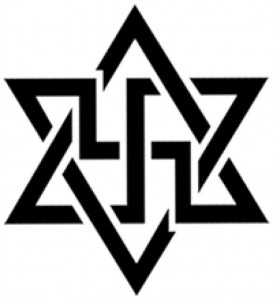 So what about ‘the Law’ as set out in the Torah, the Jewish Bible or the first five books of the Old Testament and the ‘ten commandments’? The word ‘Torah’ translates as ‘instructions’, not as ‘Law’. The so–called ‘ten commandments’ are never referred to as such in the biblical text (although editors have unhelpfully inserted headings like ‘The Ten Commandments’). The Torah does refer to God’s statutes, Law and judgments but does not distinguish between them.
So what about ‘the Law’ as set out in the Torah, the Jewish Bible or the first five books of the Old Testament and the ‘ten commandments’? The word ‘Torah’ translates as ‘instructions’, not as ‘Law’. The so–called ‘ten commandments’ are never referred to as such in the biblical text (although editors have unhelpfully inserted headings like ‘The Ten Commandments’). The Torah does refer to God’s statutes, Law and judgments but does not distinguish between them.
It does though include what are later referred to as commandments in the New Testament:
And thou shalt love the LORD thy God with all thine heart, and with all thy soul, and with all thy might. Deuteronomy 6:5
Thou shalt not avenge, nor bear any grudge against the children of thy people, but thou shalt love thy neighbour as thyself: I am the LORD. Leviticus 19:18
The ten ‘commandments’ nevertheless remain the cardinal rules for good conduct and spiritual advancement (see The ‘Ten Commandments’ explained).
The nation of Israel
The nation of Israel famously has no written constitution. However in 2004, Menachem Elon, deputypresident of the Supreme Court of Israel, made it clear where constitutional authority comes from in th estate of Israel. He said:
Everything in the Babylonian Talmud is binding on all Israel. Every town and country must follow all customs, give effect to the decrees, and carry out the enactments of the Talmudic sages, because the entire Jewish people accepted everything contained in Talmud. The sages who adopted the enactments and decrees, instituted the practices, rendered the decisions, and derived the laws, constituted all or most of the Sages of Israel. It is they who received the tradition of the fundamentals of the entire Torah in unbroken succession going back to Moses, our teacher. www.tpuc.org/node/367
This is an admission that the Talmud – a collection of commentaries — is based on the Torah and theteachings of Moses. As we have already seen, the Torah contains the two commandments of the Law – Love God and Love your neighbour as yourself – even though they are not specifically referred to as ‘commandments’ in the Old Testament. Where the Talmud and the Torah clash, it is axiomatic that the Torah as part of the Bible – the word of God and his two divine commandments – prevails over the Talmud – the work of men.
In the biblical sense, the ‘nation of Israel’ is, primarily, those who are bound by God’s Law. ‘Israel’means ‘those who struggle with God’.
The Law is paramount and mandatory.
The Law treats everyone equally.
Man cannot create Law or laws.
The Law of God exists as man cannot take away that which God, a higher authority recognised in the oath and in insurance contracts, has given.
An individual man has higher authority than any corporation.